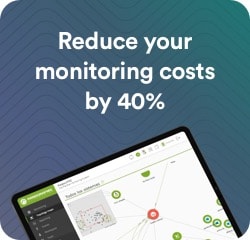General operation
The general operation of a VPN involves several steps:
2. Authentication: The client authenticates with the VPN server using provided credentials.
4. Data Encryption and delivery: All data is encrypted before entering the tunnel to protect it.
6. Destination response: The destination processes the request and sends a response to the VPN server.
8. Decryption on user’s device: The device receives, decrypts, and displays the response.
This process ensures a safe and private connection, protecting data during transmission. In addition, many VPNs offer additional security features to enhance the user’s online protection.

Main goals of a VPN
The main goals of a VPN are:
- Connection security: Provide a safe, encrypted connection between the user’s device and the VPN server. This protects user information from interception by third parties, such as hackers or internet service providers.
- User privacy: Hide the user’s IP address and encrypt their data to maintain online privacy. This prevents websites, advertisers, and other entities from tracking the user’s online activities.
- Safe remote access: Allow users to securely access resources and data on your private network from remote locations. It is particularly useful for employees who work remotely or need to access corporate resources outside of the office.
- Avoiding geographic restrictions: Bypass geo-restrictions by allowing users to access online content that might be blocked or restricted in certain locations.
- Protection on Public Networks: Provide extra security when connecting to public or unsafe Wi-Fi networks. A VPN encrypts traffic, reducing the risk of security attacks on public networks.
- Online anonymity: Help users maintain anonymity online by hiding their IP address and encrypting their communications, making it difficult to track their identity and activities.
- Improving online security: Offer an extra security layer by protecting against cyber threats such as malware, phishing, and identity theft, by encrypting data in transit.
- Overcoming Censorship and Government Restrictions: Allow users to bypass internet censorship and access content that may be blocked by governments or local authorities.
These goals make VPNs a versatile tool for improving online security, privacy, and freedom for both individual and business users.
What can a VPN do for you?
Privacy
A VPN protects the confidentiality of data through encryption and provides a degree of anonymity by hiding the user’s IP address. This is outstandingly useful for maintaining online privacy, protecting against unauthorized surveillance, and preventing third-party activity tracking.
Anonymity
The VPN server acts as an intermediary between the VPN client and the destination, the source IP is replaced by that of the VPN server, which is the one that redirects the information, that way the destination of the information cannot know the real source of that information.

Security
When we connect to a public network (such as the public transport network, or that of a hotel), we are exposed to hackers who may be intercepting our online transactions, which is why the use of a VPN encrypts the data that is transmitted, this means that the data will be unreadable in case of external interception.
Enterprise remote access
A VPN is necessary for employees to securely access company resources outside the office (such as internal documents, databases, servers, and applications).
VPNs make work flexibility easier by allowing employees to work effectively from anywhere with an internet connection. This can improve job satisfaction, employee retention, and the company’s ability to attract talent in any geographic location.
How a VPN works?
Tunnel protocol
A tunnel protocol is a set of rules and procedures that defines how data should be encapsulated, transmitted, and decapsulated over a network. These protocols allow to create safe “tunnels” between two points in a network, such as between a client and a VPN server.
Examples of tunnel protocols:
- IPSec (Internet Layer Security Protocol): It provides a set of protocols for packet-level communication security at the network layer.
- OpenVPN: An open source protocol that uses SSL/TLS technologies for security. It has become widely accepted for its versatility and safety.
- L2TP/IPsec (Layer 2 Tunneling Protocol/Internet Layer Security Protocol): It is often used with IPSec to provide encryption. It is not as safe as other VPN protocols, but is widely supported and easy to configure.
- PPTP (Point-to-Point Tunneling Protocol): An older, simpler and faster protocol, but with lower safety than other options.
- SSTP (Secure Socket Tunneling Protocol): Developed by Microsoft, it uses SSL/TLS for encryption and is usually deployed on Windows systems.
- IKEv2/IPsec (Internet Key Exchange Version 2 with IPsec): A tunnel protocol that uses IPsec for encryption and authentication, with IKEv2 for key management.
These tunnel protocols vary in terms of security, compatibility, and speed, and the choice between them depends on the specific requirements and preferences of the user or organization.
Data encryption
Data encryption is a process by which information is transformed from a readable form (plain text) to an unreadable format (ciphertext) using a specific algorithm and key. Encryption is essential to ensure information security and privacy, especially when transmitted over networks.
The concepts used during data encryption are as follows:
- Encryption algorithm: A specific algorithm is used to transform the original data into an encrypted form. This algorithm follows a set of mathematical rules and operations to perform the conversion. Algorithms may vary in complexity and security.
- Encryption key: A key is used to encrypt and decrypt information. The key is a string of bits that acts as a “code” for the algorithm. The encryption process is carried out by the algorithm using this key. Importantly, encryption security depends heavily on the strength of the key.
- Encrypted text: When the data is subjected to the encryption process using the algorithm and the key, the result is the ciphertext. This ciphertext is unreadable and seemingly random, making it difficult to interpret without the proper key.
- Safe transmission: Encrypted data can be transmitted over unsafe networks, such as the Internet, more securely. Even if a third party intercepts the data, they won’t be able to understand the information without the encryption key.
- Decryption at destination: At the receiving end, the decryption process uses the same key and a reverse algorithm to convert the ciphertext back to its original or plain form. This process ensures that only authorized parties who possess the correct key can interpret and use the information.
The most common encryption algorithms include AEs (Advanced Encryption Standard), DES (Data Encryption Standard), RSA (Rivest–Shamir–Adleman), among others. The length of the key and the type of algorithm selected play a crucial role in the strength of the encryption. In the context of VPNs, encryption is used to protect the privacy and security of data transmitted over the network.
Why use a VPN?
Public network security
A VPN is essential in public networks because it encrypts your Internet traffic, protecting you from hackers and espionage, improves privacy and guarantees security on public Wi-Fi networks, protects against attacks from intermediaries.
Search history privacy
A VPN helps preserve the privacy of your search history by encrypting your internet connection, hiding your online activities from your internet service provider (ISP), and preventing third parties from tracking your search history. At the same time, it protects against censorship and provides an additional layer of anonymity, thus contributing to maintaining user privacy online.
Access to global streaming services
A VPN enables access to global streaming services by changing the user’s virtual location. By connecting to servers in different countries, VPN allows you to bypass geo-restrictions, making it easier to see content on streaming platforms that may be limited or blocked in certain regions. This extends content availability and gives users the ability to access streaming services globally.
Online identity protection
A VPN provides online identity protection by hiding the user’s IP address and encrypting their Internet traffic. By routing the connection through a remote server, the VPN prevents third parties, such as hackers or internet service providers, from accessing and monitoring the user’s online activity. This protects privacy and makes it difficult for cybercriminals to track or steal personal information. A VPN works as an additional security layer to safeguard the user’s online identity.
Setting up a VPN
In this example, I will show how to connect to a VPN server provided by a specific provider, UrbanVPN, using their VPN client. In this case, we have opted for a free provider that offers a wide variety of locations and guarantees anonymity on the internet. Below, I will present a practical example:
Currently, in the eyes of the Internet, our public IP address shows that we are in Spain:

However, when using the VPN client, we selected Argentina as the new VPN server location (managed by the provider):

When looking at the established connection, we noticed that both the IP address and the location have undergone a change. From an Internet perspective, I now operate from Argentina, which means my real IP address and location are not visible.

How to choose a VPN provider
Registry policies
When choosing a VPN provider based on logging policies, look for those that offer:
- No registration or minimum registration.
- Location in privacy-friendly jurisdictions.
- Clear details about what data they record.
- A positive record of transparency and commitment to privacy.
- A clear data retention policy, preferably with automatic deletion.
Updated software
Software update is crucial to ensure security, performance, compatibility, new features, error correction and regulatory compliance.
Bandwidth limit
It is important to consider limits when choosing a service to avoid restrictions on connection speed and the amount of data that can be transferred.
Location of VPN servers
The location of VPN servers is a key factor when choosing a provider. A wide geographical scope of servers allows for better coverage and options for the user. Server proximity can affect connection speed, and having servers in multiple locations makes it easier to access geo-restricted content. It is important to consider the provider’s server network when selecting a VPN service.
Paid vs. free VPN
Free VPN limitations
Free VPNs have limitations, such as slower speeds, limited data, ads, reduced security and privacy, limited server selection, and compromised reliability. Paid options normally offer better performance and security.
Considerations in choosing
When choosing between a free or paid VPN, you should consider factors such as speed, data limits, security, privacy, number and location of servers, reliability, customer support, ease of use, additional features such as kill switch or ad blocking, privacy policies, anonymity, and the reputation of the provider in terms of transparency and trust. It is crucial to check the laws and regulations in your location, as some jurisdictions may have restrictions on VPN use.
Business VPN usage
VPN site-to-site
A site-to-site VPN, also known as a network-to-network VPN, establishes safe connections between geographically separated networks. Its utilities include cross-branch connection for businesses with multiple locations, remote access to shared resources, secure data transfer, connectivity between data centers, and improved collaboration between geographically distributed teams. In short, it is essential for businesses with a distributed geographic presence looking for a safe and efficient connection between their different locations.
Client VPN or open VPN
A client VPN, also known as an open VPN, allows individual users to securely connect to a private network over the Internet. It offers remote access, privacy and security through encryption, safe browsing by hiding the IP address, overcoming geographical restrictions and protection on public networks.
VPN SSL
A Secure Sockets Layer (SSL) VPN uses the SSL/TLS protocol to establish a safe, encrypted connection between a user and a private network over the Internet. It includes SSL/TLS encryption, browser access (i.e. no need to install any VPN clients), layered security, user authentication (using a digital certificate, for example), and secure web applications. It is ideal for environments that require secure access through browsers and web applications.
Security with Pandora FMS
As we have seen throughout this article, the benefits of a VPN in terms of security are noticeable, but there are other measures that can increase the IT security of your organization. One of them is the use of software that monitors your networks and detects vulnerabilities that may pose a risk to your company. With Pandora FMS monitoring software you may receive real-time alerts that will help you keep your networks secure.
Secure architecture
Pandora FMS design and architecture were conceived with security as a fundamental pillar. Pandora FMS supports SSL/TLS encryption and certificates at both ends and at all levels. It also has defined profiles that only grant access to relevant users. We use a system based on google authenticator that allows forcing its use to all users for security policy. On the other hand, the system allows to save in an encrypted and secure way the most sensitive data such as access credentials, custom fields of the monitoring elements, etc. Experience the most complete security in the monitoring of your company.
Importance of VPNs
Virtual private networks (VPNs) play a crucial role in today’s digital age, offering a wide range of benefits. From security and privacy to remote access and protection on public networks, VPNs have become essential tools.
Security and privacy: VPNs encrypt traffic, protecting against threats and ensuring online privacy. They anonymize the connection, hiding the IP address and avoiding activity tracking.
Enterprise remote access: They make it easy for employees to securely access internal resources from remote locations.
Protection on public networks: They are essential for protecting information on public Wi-Fi networks, preventing unauthorized access.
Global content access: It allows geo-restrictions to be circumvented, providing freedom to access services and content globally.
Bandwidth optimization: By circumventing restrictions imposed by service providers, VPNs can improve speed and reduce costs.
Identity protection: They help prevent identity theft and ensure security in online transactions.
Vendor selection: The choice between free and paid services depends on individual needs, with paid services generally offering more robust features.
Considerations: Aspects such as server location, bandwidth limits, and logging policies should be considered when choosing a VPN.
VPNs are versatile tools that address security and privacy concerns, facilitate remote access, unblock global content, and optimize the online experience. Although they present challenges such as potential speed limitations and legal restrictions in some countries, their benefits far outweigh these considerations, making them essential allies for individual users and businesses.
Future of VPN technologies
The future of VPN technologies looks promising, with trends suggesting greater relevance and development. Some key conclusions include:
Technological evolution: A continuous technological evolution in VPNs is expected, with improvements in efficiency, speed and security.
Widespread integration: VPNs will continue to be more deeply integrated into digital life, being an essential part of online security.
Privacy focus: With growing concerns about online privacy, VPNs will play a crucial role in protecting data and preserving anonymity.
Business developments: An increase in the adoption of enterprise VPNs is expected, with an emphasis on safe remote access and protection of sensitive information.
Progress on protocols: Research and development of advanced protocols will improve the security and efficiency of VPNs, adapting to emerging challenges.
Global expansion: As geo-restrictions persist, greater demand for VPNs for access to global content is anticipated.
Artificial intelligence and automation: Integrating AI and automation into VPNs could improve threat detection and mitigation, as well as simplify user experience.
Regulatory challenges: Regulatory challenges may arise as governments seek to control VPN use; however, demand for privacy may outweigh these regulations.
VPN technologies are on track to play an even more crucial role in online security and access to global resources, with ongoing developments to address emerging challenges and meet the changing needs of individuals and businesses.
Additional Resources on AWS VPN
Amazon Web Services (AWS) offers a variety of resources for deploying and managing VPN solutions. Here’s a takeaway on the additional resources in AWS VPN:
- Cloud VPN: AWS provides specific services for deploying VPN connections in the cloud, enabling businesses to extend their on-premise networks to the cloud safely.
- AWS site-to-site VPN: It enables safe connection between the on-premises network and the AWS cloud, providing a VPN tunnel over the public Internet.
- AWS client VPN: It offers remote users safe access to cloud resources through a VPN client, providing flexibility and security.
- Direct connect: It complements VPN solutions by providing dedicated, private connections between on-premise infrastructure and AWS resources.
- AWS VPN CloudHub: It facilitates connectivity between multiple offices or branches, enabling an efficient and safe communication network.
- Management and monitoring: AWS provides management and monitoring tools to monitor and manage VPN connections effectively.
Beyond limits, beyond expectations









